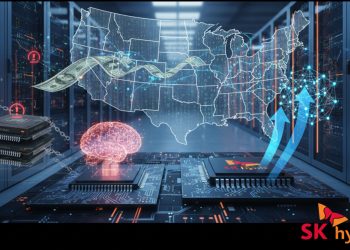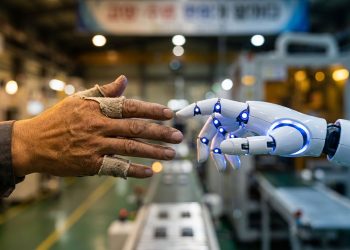South Korea plans to acquire 10,000 high-performance GPUs in 2025 to speed up the creation of a national AI computing center. Announced by the Ministry of Science and ICT on Monday, the initiative aims to strengthen the country’s AI capabilities as global competition intensifies.
Acting President Choi Sang-mok highlighted that the race for AI leadership is evolving from competition among companies to a broader contest between national innovation ecosystems.
The announcement was made during a government-private sector meeting led by Acting President and Deputy Prime Minister Choi Sang-mok. At the event, Choi emphasized the need for South Korea to strengthen its AI infrastructure, highlighting the shift in AI competition from corporate rivalry to a global race between nations. The government aims to secure the GPUs through public-private partnerships to accelerate the launch of the National AI Computing Center, currently scheduled to open in 2027.
South Korea has around 2,000 GPUs, which are essential for AI model training and development. To expand its computing capabilities, the government plans to acquire advanced models, including Nvidia’s H100 and H200 chips. However, final decisions on the budget, specific GPU models, and private sector involvement will be made by September this year. The initiative comes amid growing global efforts to enhance AI infrastructure, with countries like the United States and France launching large-scale projects to maintain technological leadership.
South Korea’s efforts are further supported by its exemption from recent U.S. regulations restricting the export of AI chips. The new rules categorize countries into tiers, with South Korea among the 18 nations permitted unrestricted access to advanced GPUs, while over 120 countries face limitations. Despite this advantage, the government has yet to finalize its purchasing strategy, considering factors such as model performance, data requirements, and AI training needs.
The Ministry of Industry is also working on defining the scope of high-tech technologies that will receive government support. Based on expert reviews and industry demand, the ministry plans to finalize this classification within the year’s first half.
Companies that develop or own advanced technologies may qualify for tax reductions, investment incentives, and special R&D zone privileges. As AI and semiconductor advancements continue to drive demand, the number of applications for high-tech recognition has steadily increased, reflecting the growing importance of technology protection and funding support.
To establish the National AI Computing Center, the government plans to create a special-purpose company (SPC) in partnership with private firms, starting with an initial investment of 400 billion won ($277 million). The SPC will have a 51 percent public and 49 percent private ownership structure, with a total projected investment of 2 trillion won.
South Korea’s AI strategy includes a 25 percent increase in this year’s AI budget to 1.8 trillion won and the launch of a cross-ministerial plan to enhance national AI capabilities. The Ministry of Science and ICT stated that the government will continuously evaluate progress through the special committee to adapt to evolving market and technology trends.
Meanwhile, global AI competition is intensifying, with OpenAI finalizing its first in-house chip design for fabrication at Taiwan Semiconductor Manufacturing Co. Additionally, China’s DeepSeek is developing AI models focused on computational efficiency rather than pure processing power, potentially narrowing the gap between Chinese and U.S. AI chips.
In South Korea, policymakers are also refining the country’s high-tech strategy. Je Kyung-hee, Director of the Industrial Technology Convergence Policy, emphasized that the system is designed to accelerate industrial growth by guiding companies on technology development and investment. The government aims to update its technology roadmap to address rising demand while strengthening related support systems.







